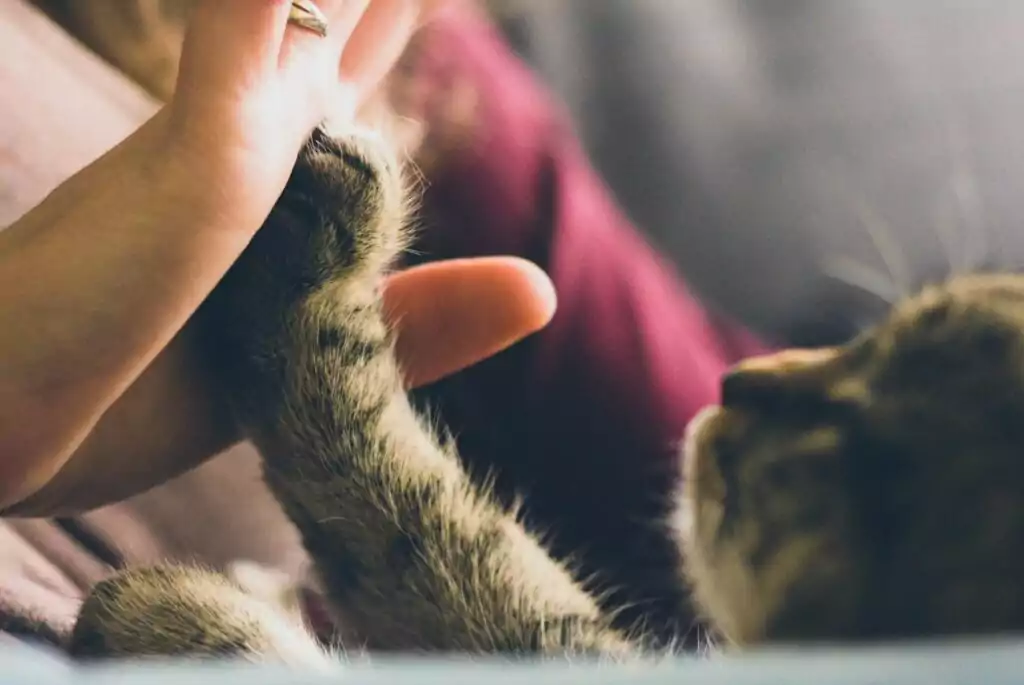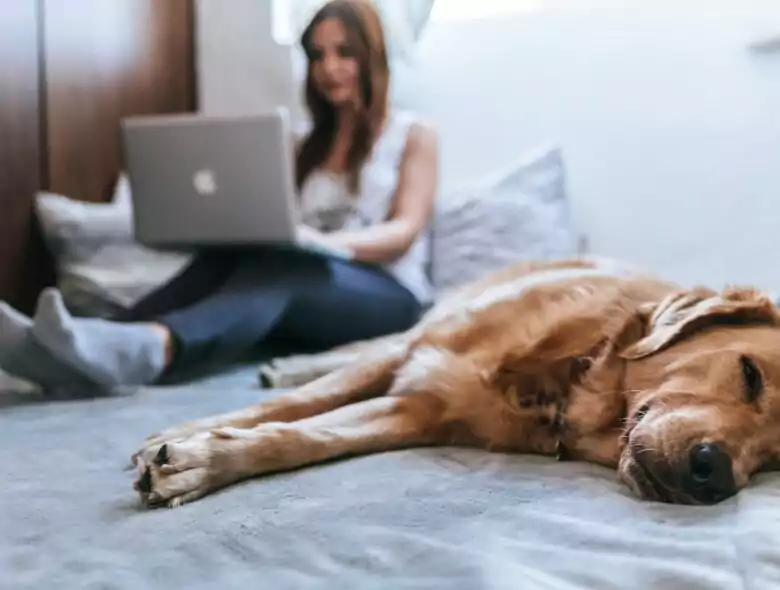Are you thinking about adopting a pet but not sure if it’s okay or what to do? You may be asking yourself:
“If the property I’m living in allows pets, can I adopt one while living there?”
“Do I need permission if I want to adopt a pet in the middle of my lease?”
“Is there anyone I have to speak to if I want to add a pet to my family?”
In a pet-friendly rental property, as long as you fulfill certain requirements, it is totally fine to adopt pets even after you’ve already moved in. However, please do not forget that you will be violating your contract if you own pets without your landlord’s permission. Additionally, the type and number of pets you can own are also subject to the terms of your rental contract, so there is a chance that you may not be able to adopt the pet(s) you want.
In this article, we will tell you some Do’s and Don’ts for adopting a pet in a pet-friendly rental property. If you’re thinking of owning a pet down the line, these are some things that you will have to consider.
Rental properties that allow pets: What is a pet-friendly property?

Simply put, a pet-friendly rental property is a place that allows tenants to keep some common pets (dogs, cats, rabbits, etc.) But it’s always best to check the exact terms of your rental contract beforehand. In cases of more unique pets, you should check directly with your landlord or property management company.
On that note, “pet-allowed” or “pet-friendly” is not the same as “pet-possible with consultation.”
In a “pet-friendly” rental property, you may keep animals during the contract term, as long as you have the landlord’s permission and meet the requirements. Your rental contract will state the type and number of pets that you can adopt.
On the other hand, “pet-possible with consultation” rental properties tend to have vague rules about what pets you are allowed to keep, making it a bit more tedious to get permission. You will have to discuss the adoption with your landlord and wait for their approval. If they think that having pets on the property might cause problems, they may not give you the green light.
If I live in a pet-friendly property, what do I need to do before getting a pet?

Many people seem to have the misconception that living in a pet-friendly property means that you don’t need any permission to adopt a pet during the contract term.
But in reality, the security deposit that you paid in advance was calculated with the assumption that you would not be keeping any pets (which is why may have been set at a relatively low rate). So even if your property does allow pets, it is a breach of contract to simply adopt an animal without obtaining permission.
Hence, if you knowingly violate the terms of your contract and your pet gets discovered, in a worst-case scenario, you may even be forcibly evicted.
Even assuming that no one finds out about your pet, there have been many cases in which pets get discovered after the tenants move out. This is because animals may leave behind odors and scratches, which are troublesome problems to fix.
If you want to adopt a pet during the contract term, it’s best to go by the books and obtain your landlord’s permission in advance.
Submit the required documents for owning a pet

If you wish to adopt a pet in the middle of your contract term, some paperwork is required. What you need to prepare will vary slightly depending on the property, but here’s a list of recommended documents to have:
- Pet photos
A photo of your pet is required in most applications for pet ownership permits, regardless of pet type. Photos will be used to verify your pet’s size and age, so it is important to provide the most recent photos possible.
Pets also grow quickly and can completely transform in a short time. Depending on the property and pet type, you may even be required to submit a photo that was taken within the last two weeks.
- Vaccination certificate
If you own a dog or cat, you may be required to submit a vaccination certificate. They are issued by veterinary clinics. There is no specific format for vaccination certificates, but they should be accepted as long as they clearly state the type of vaccine, date, and place of vaccination.
Vaccination certificates are a guarantee of safety for other people and pets. It is one of the most commonly required documents, so make sure to have one on hand.
- Rabies shot certificate and dog registration
If you own a dog, you are required by law to get a “rabies shot” once a year in the municipality where you live and to register your dog.
So, you will usually be asked to submit a rabies shot certificate when you adopt a dog. You may also be required to submit rabies shot records every year.
- Other documents
Other requirements may include a pet health certificate and an acknowledgment of pet-related rules.
The documents required to adopt each pet may differ, so please be sure to check what you need and follow the proper procedures.
Topping up your security deposit for pet damage

In most cases, if you adopt a pet in the middle of your contract term, you will be required to top up your security deposit with another one to two months’ worth of rent. Basically, your security deposit will be returned when your contract ends, and it’s a practice that applies whether you own a pet or not.
However, pets often scratch floors, walls, fixtures, and fittings, which may cost up to two to three months’ worth of rent to repair after the tenant moves out.
Pet-friendly rental properties require tenants to pay higher security deposits in case expensive repairs are required after they move out.
Damage to the property and other issues: Beware of these three problems when getting a pet in the middle of your contract term!

If you are going to adopt a pet after you’ve already moved in, these are three important things to take note of to avoid trouble:
- Unvaccinated dogs will be rejected
Your landlord will not give you permission to adopt a dog that has not been vaccinated for rabies. This is to protect other residents from unexpected bites by unvaccinated dogs.
The Rabies Prevention Act makes vaccination mandatory for all dogs from three months of age. The vaccine is important to protect the dog itself as well as the safety of other residents. So be sure to vaccinate your dog as soon as it turns 3 months old.
- Avoid noise complaints
If you’re thinking of keeping a pet, remember to consider how much noise it might make. New owners often do not realize how noisy animals can be. If you do decide to adopt a pet, you will also need to make preparations to avoid disturbing other residents.
To reduce noise, you can consider:
- Placing cushion mats on the floor to reduce echoes
- Adding sound-absorbing panels to the wall
- Installing blackout curtains
- Leaving a space between furniture and the wall
You should also train your pet to not make noise, and create a daily rhythm of play and rest that is similar to humans’ to avoid problems with your neighbors.
- Beware of high costs when moving out
If you have pets, your move-out costs are likely to be higher for the following reasons:
- Scratches on floors and walls
- Stains caused by excrement
- Odors throughout the property
After a tenant with a pet moves out, the average cost of repair is around 2-3 months’ worth of rent. This is why the security deposit is higher if you own a pet.
If you live in a pet-friendly rental property and now want to adopt a pet, you will need to check with your landlord or management company in advance, and then settle the additional deposit and required paperwork. It is also a good idea to read up about the troubles that can arise from owning a pet before committing to adoption.
If you are worried that your current rental property does not allow pets after you have moved in, please feel free to contact us. Some of our Village House properties are pet-friendly, and we will support you in finding the ideal new home for you and your pet!
Related articles:
- I Live Alone but I Want to Keep a Dog! Things to Know about the Necessary Costs and How to Take Care of a Dog
- I Want to Keep a Cat but I Live in a Rental Property! Introducing the Costs, Benefits, and Downsides You Should Know About
- Do Rental Properties Allow Hamsters as Pets? How to Care for Them and Other Key Points! (Updated for 2025!)
- Renting with Fins: What You Need to Know Before Setting Up a Fish Tank in Your Apartment
- Owning Pets in Japan



